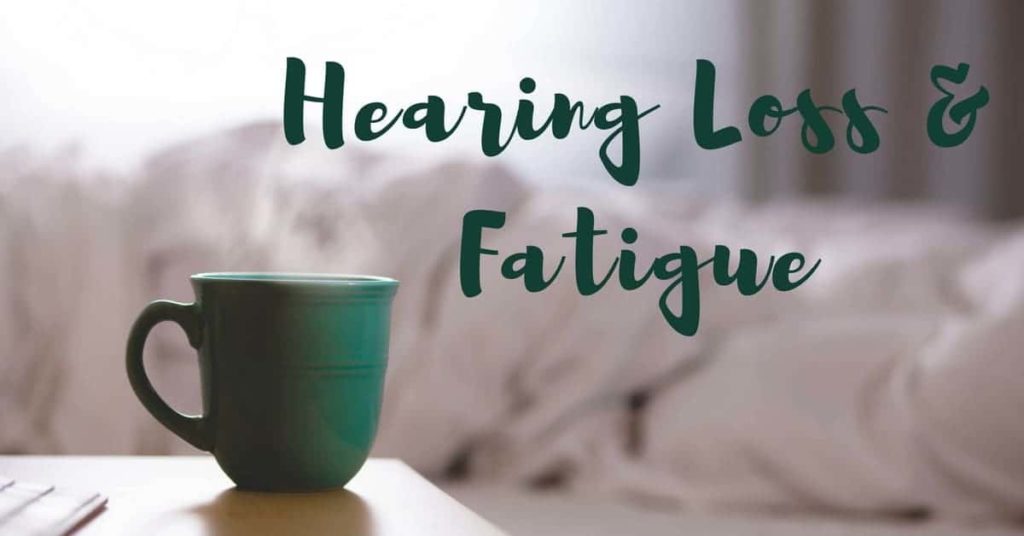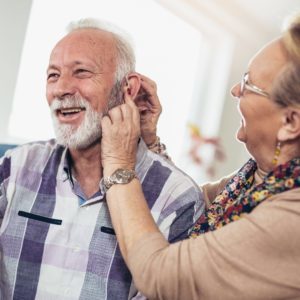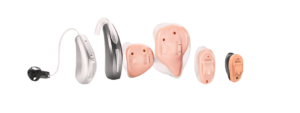People with hearing loss experience fatigue
And then do Hearing Aids Reduce Fatigue?
Hearing loss can affect people’s lives beyond their difficulty hearing (Heffernan et al., 2016). One effect which has attracted increased interest in recent years is the potential additional cognitive fatigue experienced in everyday life by people with hearing loss. While the experience of having cognitive fatigue may in itself be negative, cognitive fatigue can also negatively impact other health-related outcomes such as activity and quality of life
The basic and most intuitive theory of listening-related cognitive fatigue states that the cognitive effort required in challenging listening situations constitutes a drain on finite cognitive resources, resulting in fatigue (Hornsby et al., 2016). However, factors such as motivation play an important role, meaning that the development of listening-related fatigue is multi-faceted (Hockey, 2013).
While listening effort does seem to be the main instigator of fatigue for people with a hearing loss (who experience challenging listening relatively frequently), the development of fatigue in some has also been linked to the negative emotions associated with having a hearing loss (Holman et al., 2019).

Do Hearing Aids Reduce Fatigue?
Logically then, an increase in audibility through the fitting of hearing aids should reduce the listening effort required in any given situation, and in turn reduce fatigue. Evidence regarding the impact of hearing aid fitting (as opposed to cochlear implant fitting) on fatigue has focused to date mainly on the cross-sectional study of people wearing and not wearing hearing devices (Alhanbali et al., 2017; Bisgaard & Ruf, 2017).
Such research has provided mixed evidence and, by virtue of using self-report questionnaires, invariably measures long-term fatigue. However, Hornsby (2013) used a crossover study design to measure transient fatigue and listening effort and identified an objective benefit of hearing aid fitting through better performance using a dual-task paradigm. The lack of subjective benefit found by that study suggests that subjective and objective measures of transient fatigue may not tap into the same phenomenon.
Regarding long-term fatigue, it is possible that general fatigue questionnaires may not consistently detect any beneficial impact of hearing device fitting on fatigue, due to a lack of sensitivity.
Listening-related fatigue affects people in different ways, and may also be managed differently from person to person (Davis et al., 2021; Holman et al., 2019).
As listening-related fatigue is generally contingent on engagement in conversational activity, it has been postulated that activity levels (social, work, and physical) and listening-related fatigue are related and may affect well-being (Holman et al., 2021b). It is thus possible that more conversationally active lifestyles, such as being involved in workplace environments, would lead to greater instances of listening-related fatigue. Additionally, there is cross-sectional evidence that hearing aid use is linked to increased social activity levels (Fisher et al., 2015; Lee & Noh, 2015; Sawyer et al., 2019). Therefore, the impact of hearing aid fitting on listening-related fatigue may be connected to daily-life activity, and the impact of hearing aid fitting on well-being would be dependent on what, if any, changes there were in both fatigue and activity.
Examining interactions between fatigue and activity has not been a feature of quantitative research in the field, which may account for discrepancies between studies. Other individual differences may have a role in listening-related fatigue: Perceived hearing difficulty rather than audiometrically measured hearing loss has previously been linked to subjective fatigue (Hornsby & Kipp, 2016). Additionally, one’s inclination towards effortful cognitive activity (need for cognition) has been identified as related to the amount of effort exerted in group situations (Smith et al., 2001).
Does Hearing Aids Reduce Fatigue?
Answer: As with so many questions, the answer to the question of “do Hearing Aids Reduce Fatigue”, the answer is absolutely maybe.




